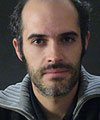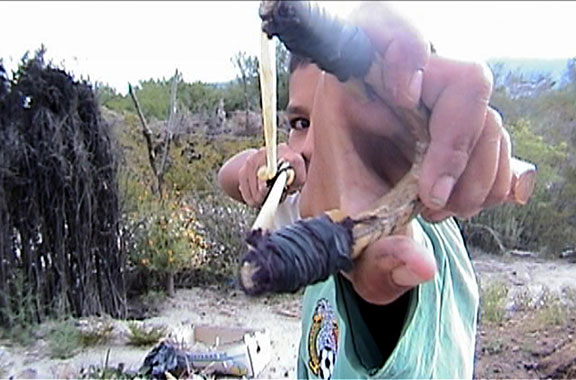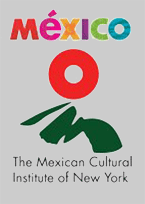Join us for an evening with two of Mexico’s most talented up-and-coming filmmakers: Eugenio Polgovksy and Pedro González Rubio, as they present their acclaimed debut documentary films. Both Polgovsky and González-Rubio belong to an exciting generation of young directors that are rapidly changing the landscape of local filmmaking in Mexico and are pushing the boundaries of traditional representations. Trópico de Cáncer and Toro Negro are examples of intense and powerful filmmaking that are in tune with the country’s current political and social struggles.
González-Rubio’s latest effort, Alamar, will closed theatrically in New York City at Film Forum on July 14th, courtesy of Film Movement.
6pm:
Trópico de Cáncer / Tropic of Cancer by Eugenio Polgovsky (Mexico, 2004, 52 minutes, Minimal dialogue in Spanish with English subtitles)
 “An honest depiction of people’s everyday struggle for survival – in the venerable tradition of Buñuel’s Land Without Bread, or Kalatozishvili’s Salt For Svaneti.” -Neil Young, Film Lounge
“An honest depiction of people’s everyday struggle for survival – in the venerable tradition of Buñuel’s Land Without Bread, or Kalatozishvili’s Salt For Svaneti.” -Neil Young, Film Lounge
A poignant and powerful documentary, Trópico de Cáncer is a meticulous account of the perilous conditions of a group of families living in the arid desert of San Luis Potosí in their quest for survival hunting animals to sell them on the highway. Both visually and narrative astonishing, the film is Eugenio Polgovsky’s documentary debut which was screened in numerous film festivals around the world.
Discussion with directors Eugenio Polgovsky, Pedro González-Rubio, and Carlos Gutiérrez following screening.
8pm:
Toro Negro by Pedro González-Rubio and Carlos Armella (Mexico, 2005, 87 minutes, in Spanish with English subtitles)
 “Harsh, intense, yet artfully shaped filmmaking that continually takes you one step further than you thought you’d go.” – Stuart Klawans, The Nation
“Harsh, intense, yet artfully shaped filmmaking that continually takes you one step further than you thought you’d go.” – Stuart Klawans, The Nation
Toro Negro gives deep insight into the life of Fernando Pacheco a.k.a El Suicida (The Suicidal), a young bullfighter who fights not in big arenas but at popular parties of small Mayan communities in the Yucatán Peninsula. Fernando is heart-warming and honest, but also an alcoholic, violent and impulsive. Pedro González-Rubio and Carlos Armella follow, almost from the character’s inside, and sometimes with a disturbing closeness. Toro Negro is a documentary that shows human passions and conflicts with rawness and humor.
Introduction by co-director Pedro González-Rubio.
 Eugenio Polgovsky was born in Mexico City in 1977. In 1994 he won the world photography contest “Living together,” organized by UNESCO. He studied directing and cinematography at the Centro de Capacitación Cinematografíca in Mexico City, graduated cum laude. His work as a director comprises short films and documentaries. He has also worked as cinematographer in documentaries and fiction films. Trópico de Cáncer / Tropic of Cancer, his first documentary, won several prizes around the world (Ariel for Best First documentary by the Mexican Academy of Cinematography, Joris Ivens Prize at Cinema du Réel, Best Documentary in Lebanon, Korea, Morelia, FICCO, among others). Trópico de Cáncer also had a special screening at Cannes’ Critic’s Week and was part of Frontier selection at Sundance. In 2004 Polgovsky received Mexico’s National Youth Prize. His new documentary, Los herederos / The Inheritors, produced with support of the Hubert Bals Fund and Visions Sud Est had its world premier at the 65th Venice Film Festival.
Eugenio Polgovsky was born in Mexico City in 1977. In 1994 he won the world photography contest “Living together,” organized by UNESCO. He studied directing and cinematography at the Centro de Capacitación Cinematografíca in Mexico City, graduated cum laude. His work as a director comprises short films and documentaries. He has also worked as cinematographer in documentaries and fiction films. Trópico de Cáncer / Tropic of Cancer, his first documentary, won several prizes around the world (Ariel for Best First documentary by the Mexican Academy of Cinematography, Joris Ivens Prize at Cinema du Réel, Best Documentary in Lebanon, Korea, Morelia, FICCO, among others). Trópico de Cáncer also had a special screening at Cannes’ Critic’s Week and was part of Frontier selection at Sundance. In 2004 Polgovsky received Mexico’s National Youth Prize. His new documentary, Los herederos / The Inheritors, produced with support of the Hubert Bals Fund and Visions Sud Est had its world premier at the 65th Venice Film Festival.
 Pedro González-Rubio is a Mexican filmmaker born in Brussels. His initiation to visual arts came at the age of 16 while living in New Delhi. He studied media in Mexico before attending the London Film School. He worked as a cinematographer on the film Nacido sin / Born Without (2007) by Eva Norvind. His directorial debut, Toro Negro (2005, co-director), received several awards including the Horizontes Award for Best Latin American film from the San Sebastian Film Festival and the Best Documentary Award at the Morelia Film Festival. Alamar is his feature film debut, which nonetheless remains true to real life. The film has won numerous awards including the Tiger Award at the Rotterdam Film Festival, The Jury Award for Best Iberoamerican Film at the Miami Film Festival and the Best Film Prize at the Buenos Aires Independent Film Festival.
Pedro González-Rubio is a Mexican filmmaker born in Brussels. His initiation to visual arts came at the age of 16 while living in New Delhi. He studied media in Mexico before attending the London Film School. He worked as a cinematographer on the film Nacido sin / Born Without (2007) by Eva Norvind. His directorial debut, Toro Negro (2005, co-director), received several awards including the Horizontes Award for Best Latin American film from the San Sebastian Film Festival and the Best Documentary Award at the Morelia Film Festival. Alamar is his feature film debut, which nonetheless remains true to real life. The film has won numerous awards including the Tiger Award at the Rotterdam Film Festival, The Jury Award for Best Iberoamerican Film at the Miami Film Festival and the Best Film Prize at the Buenos Aires Independent Film Festival.










